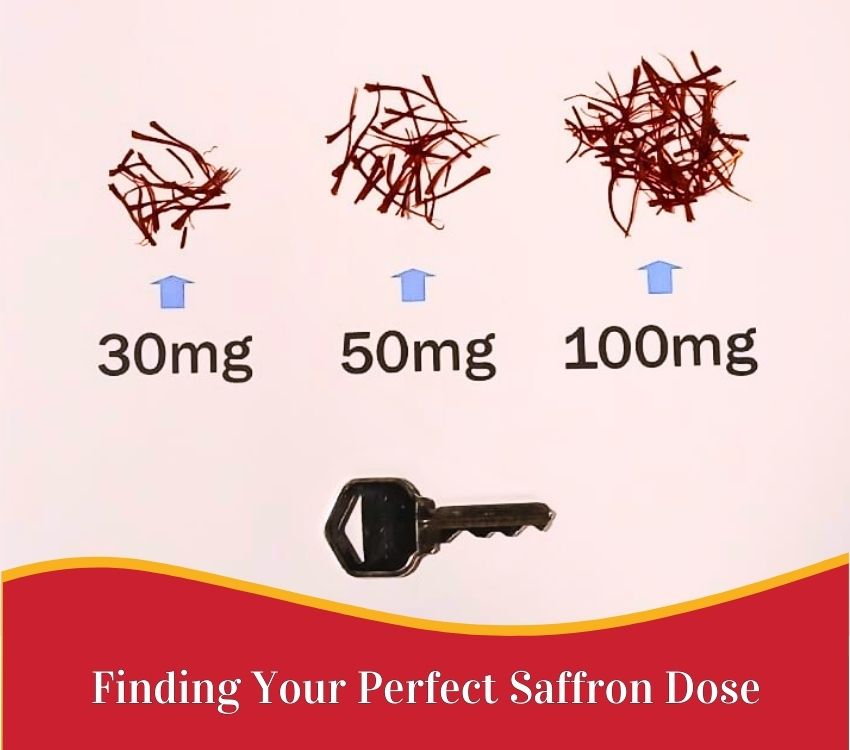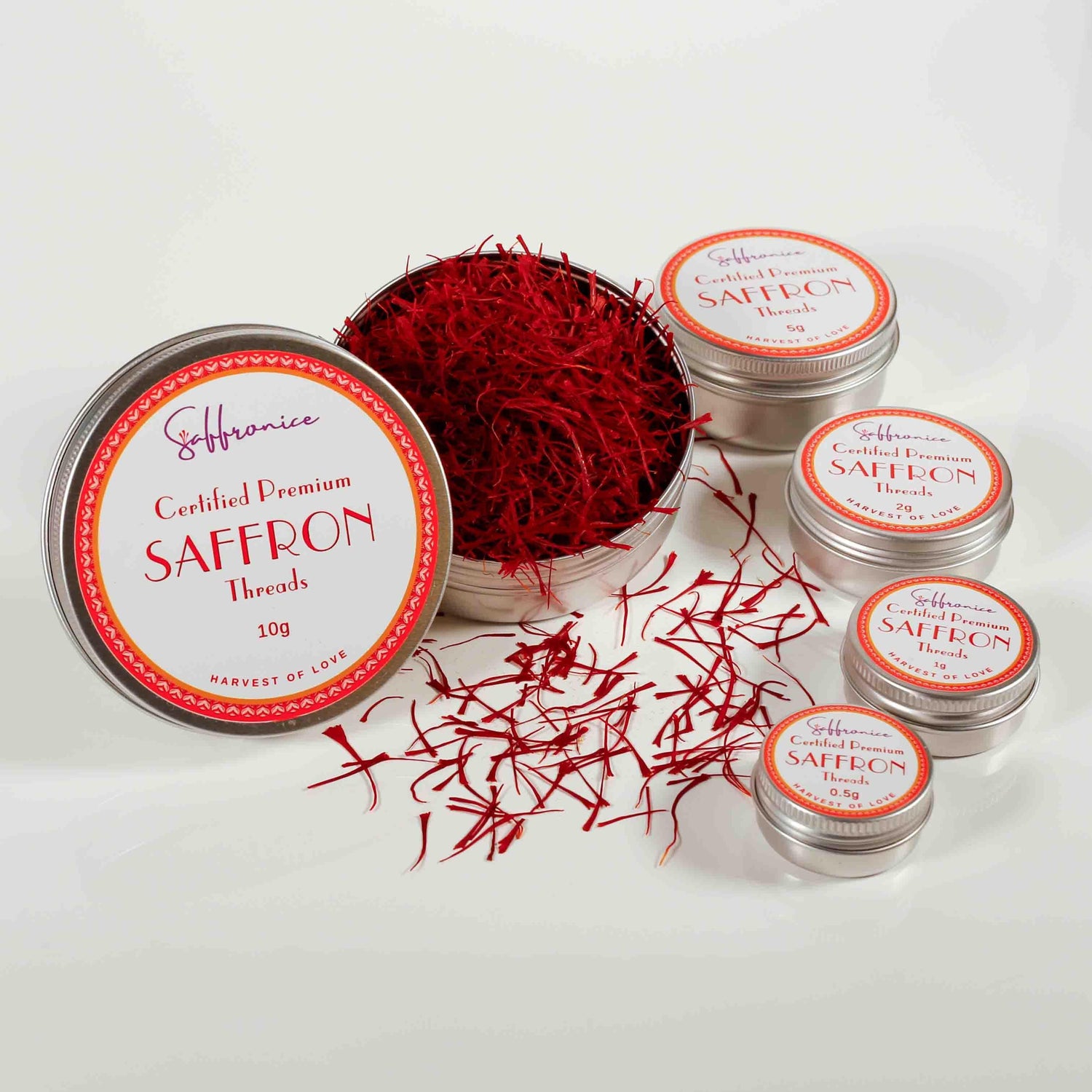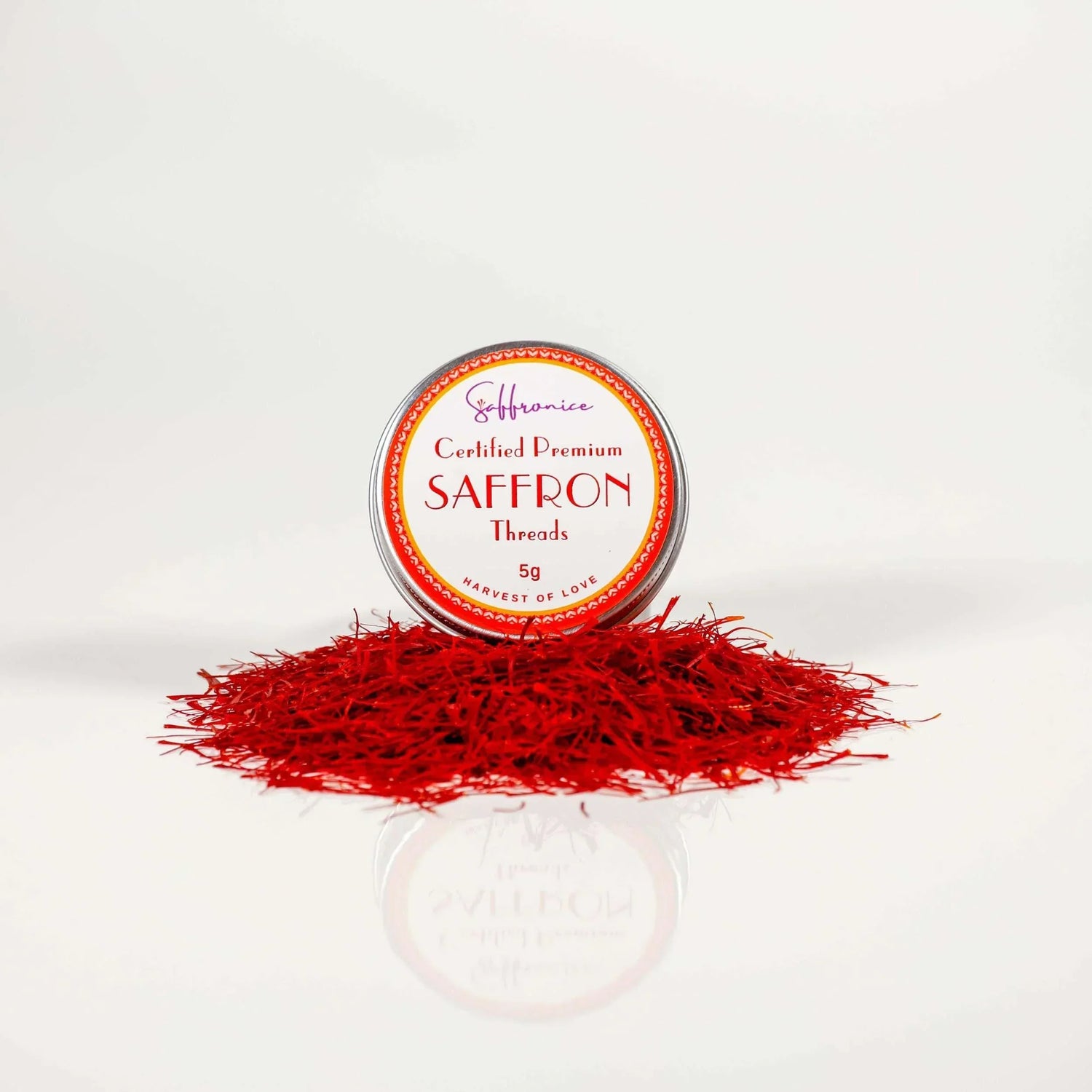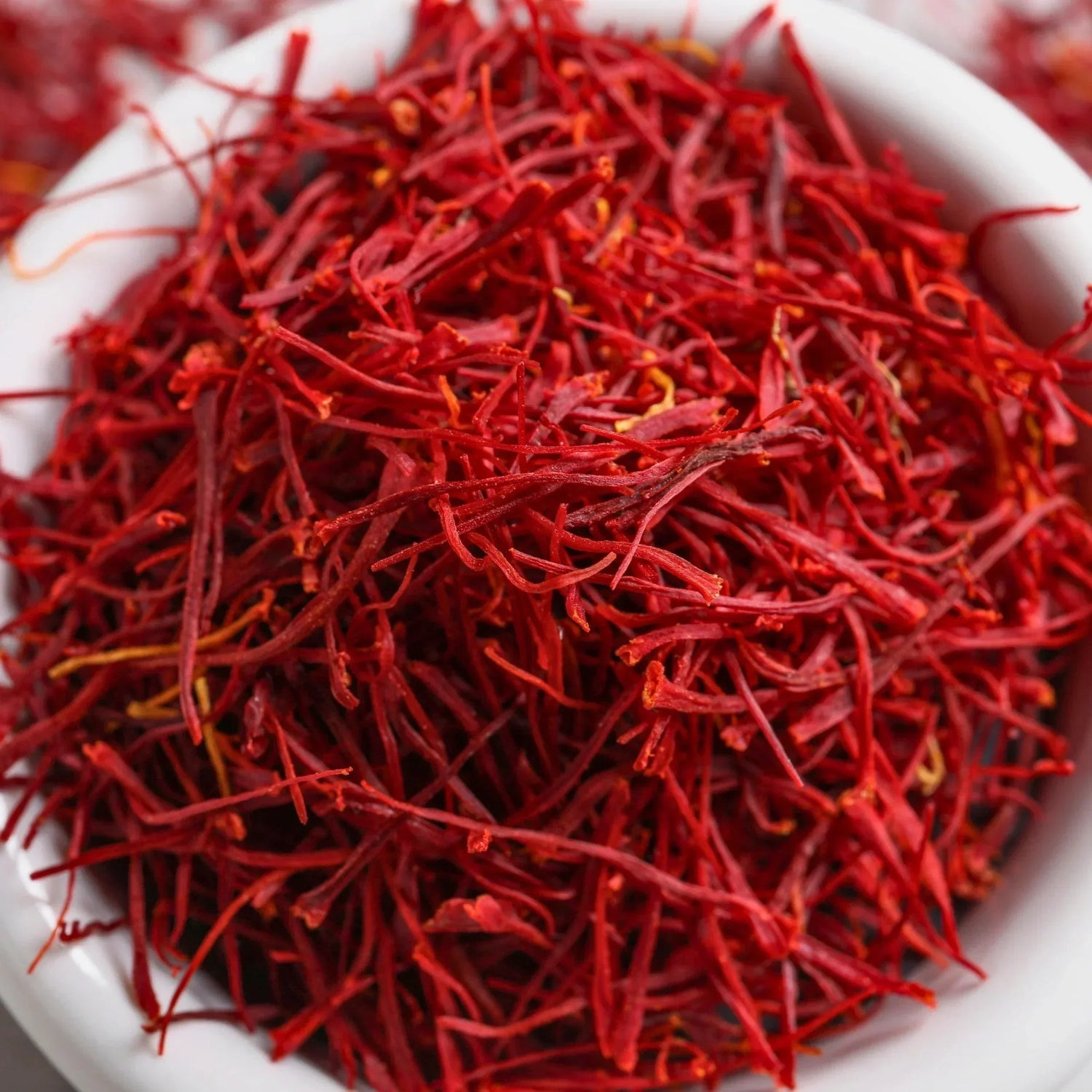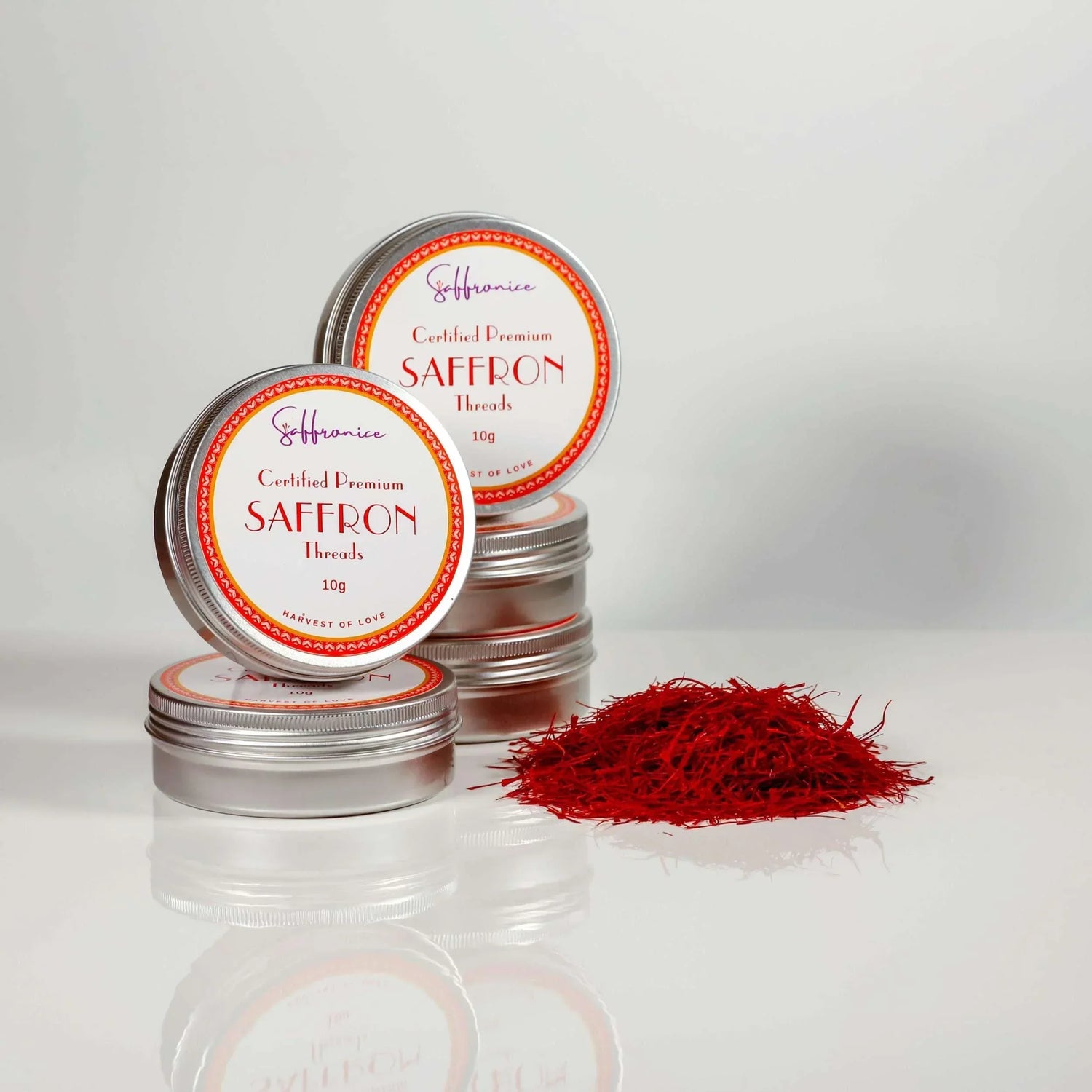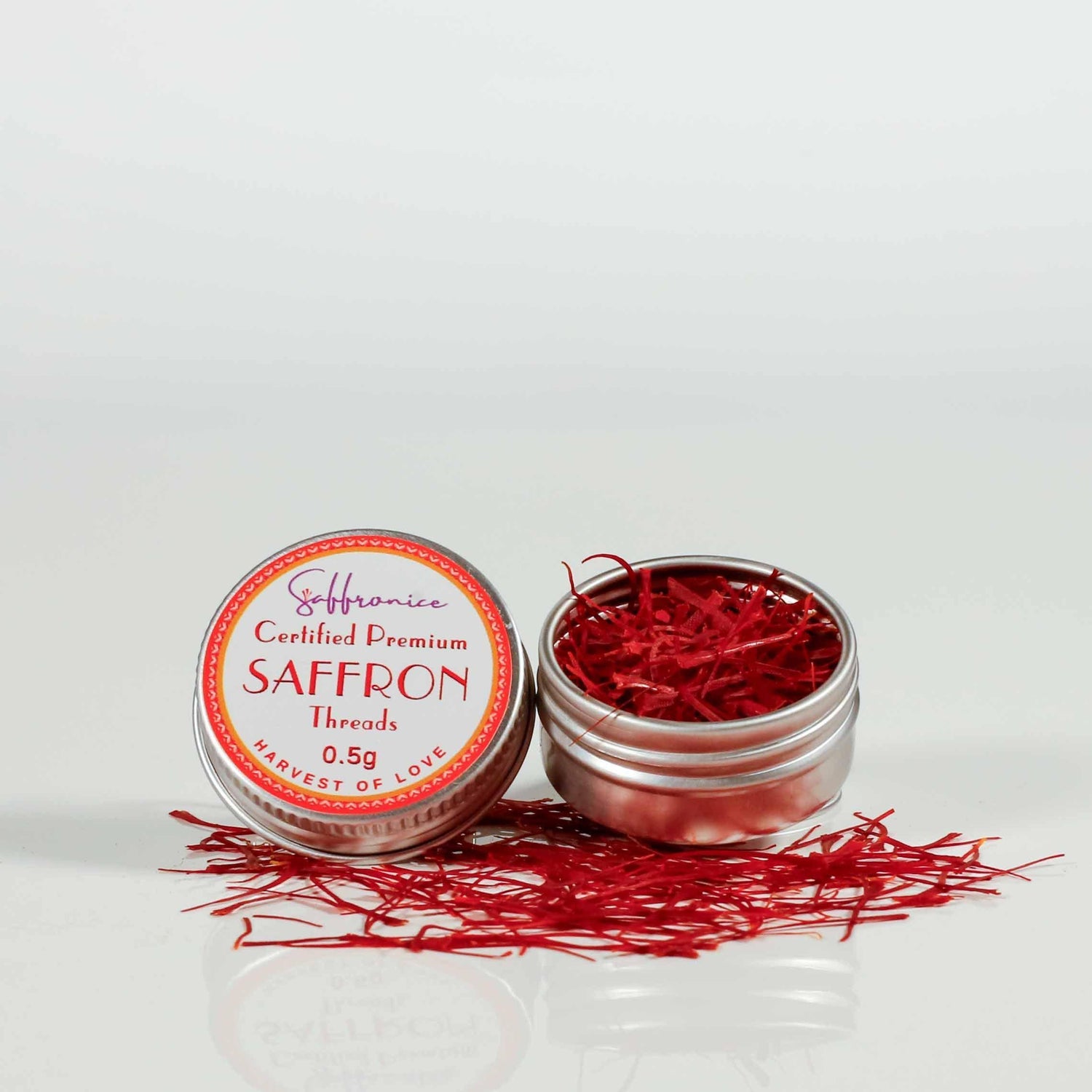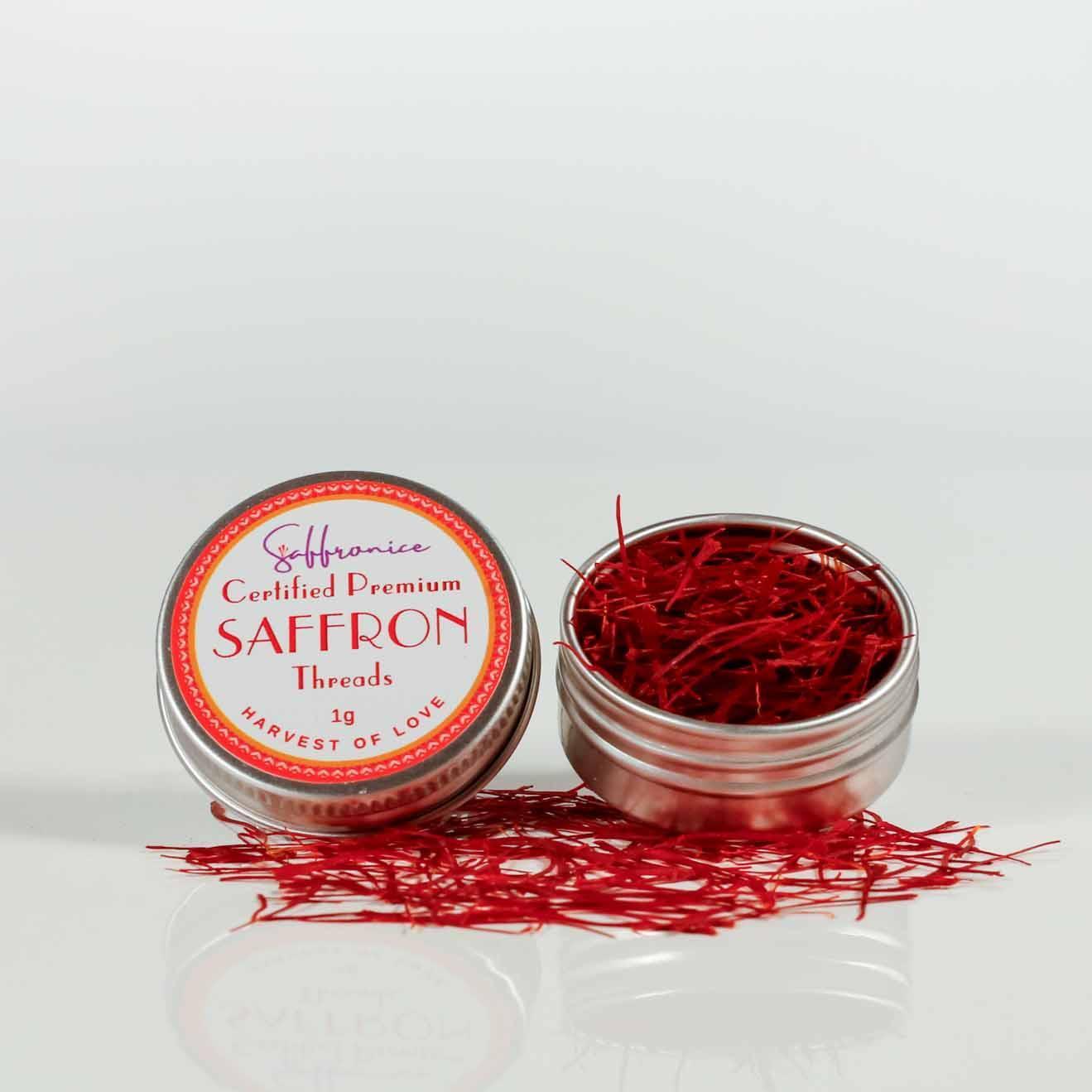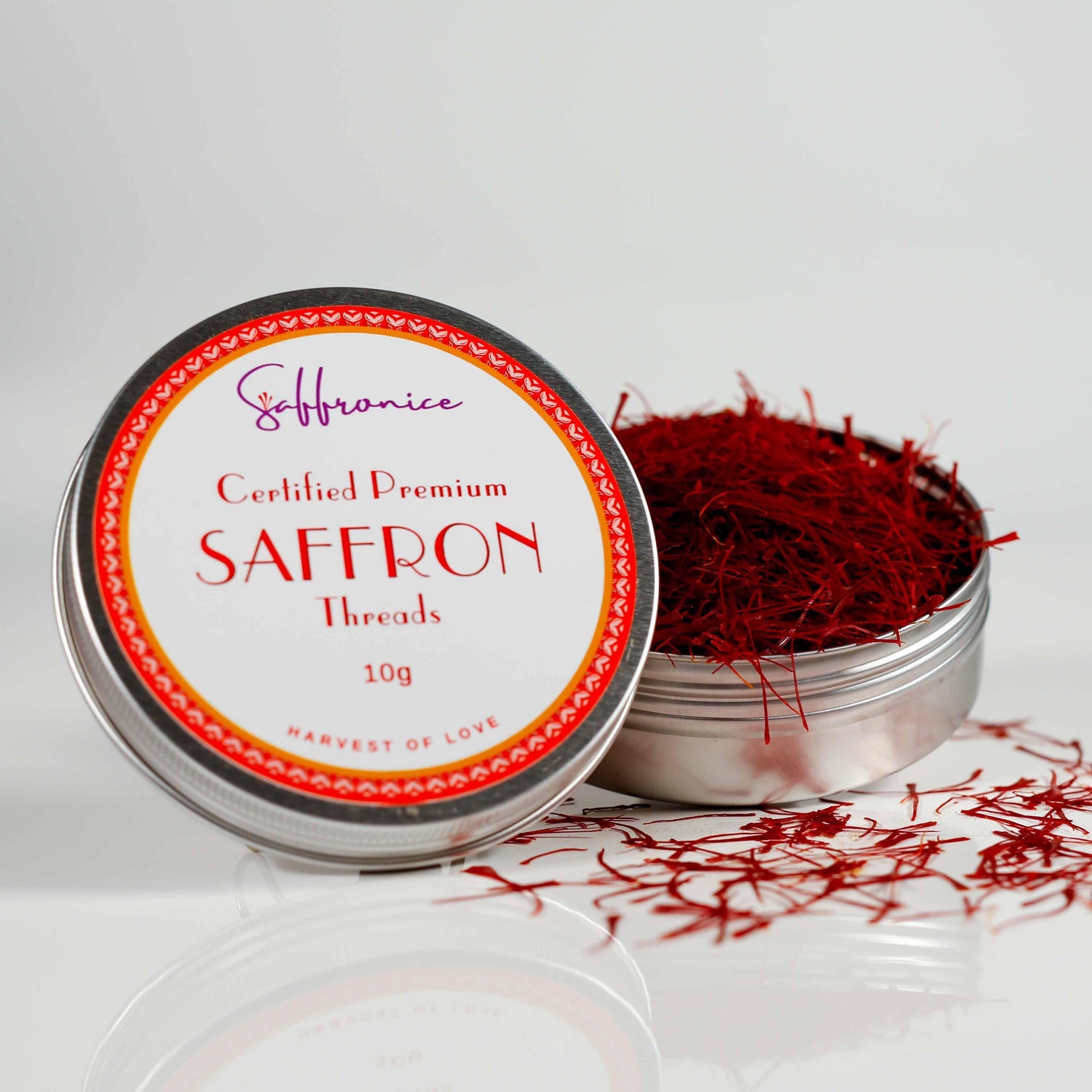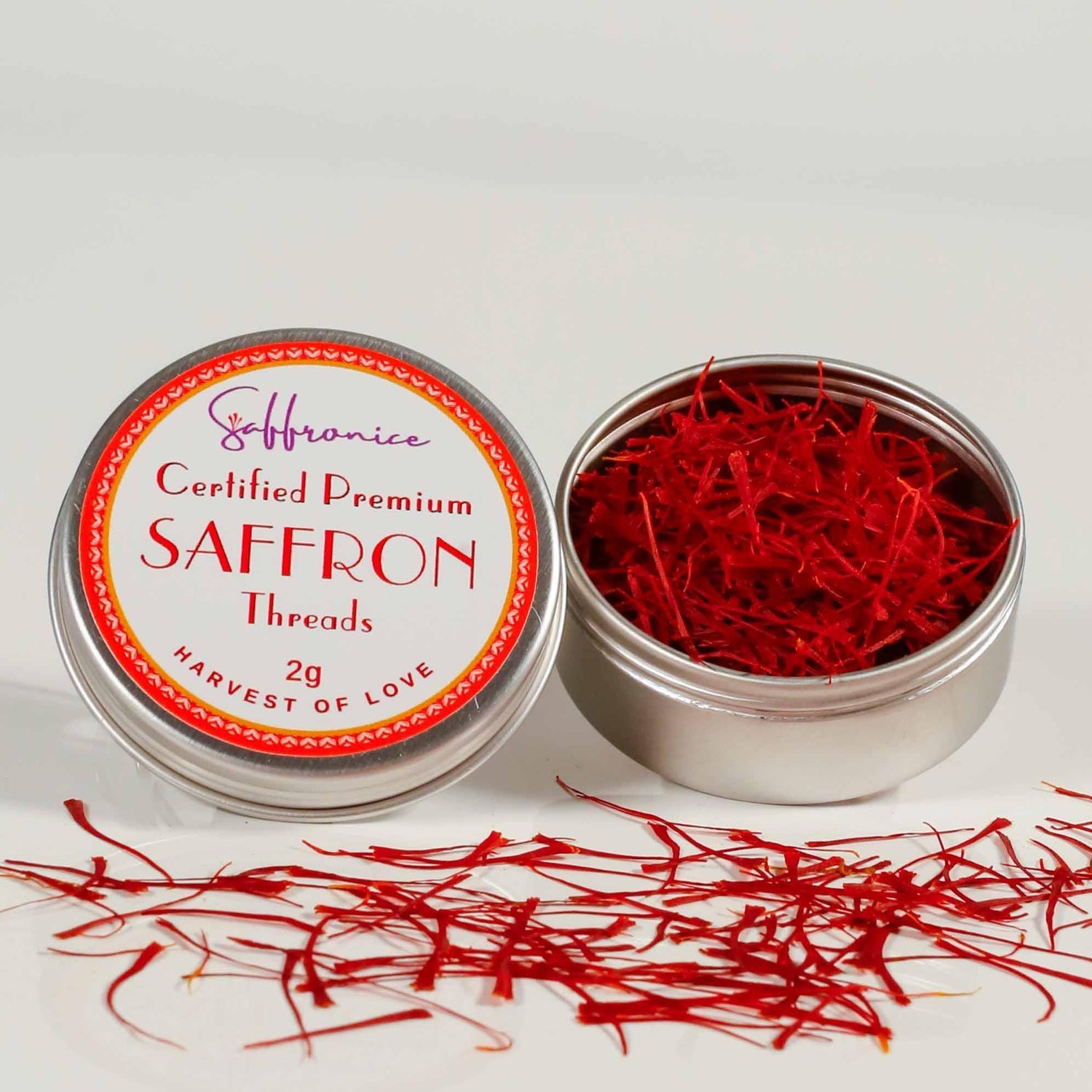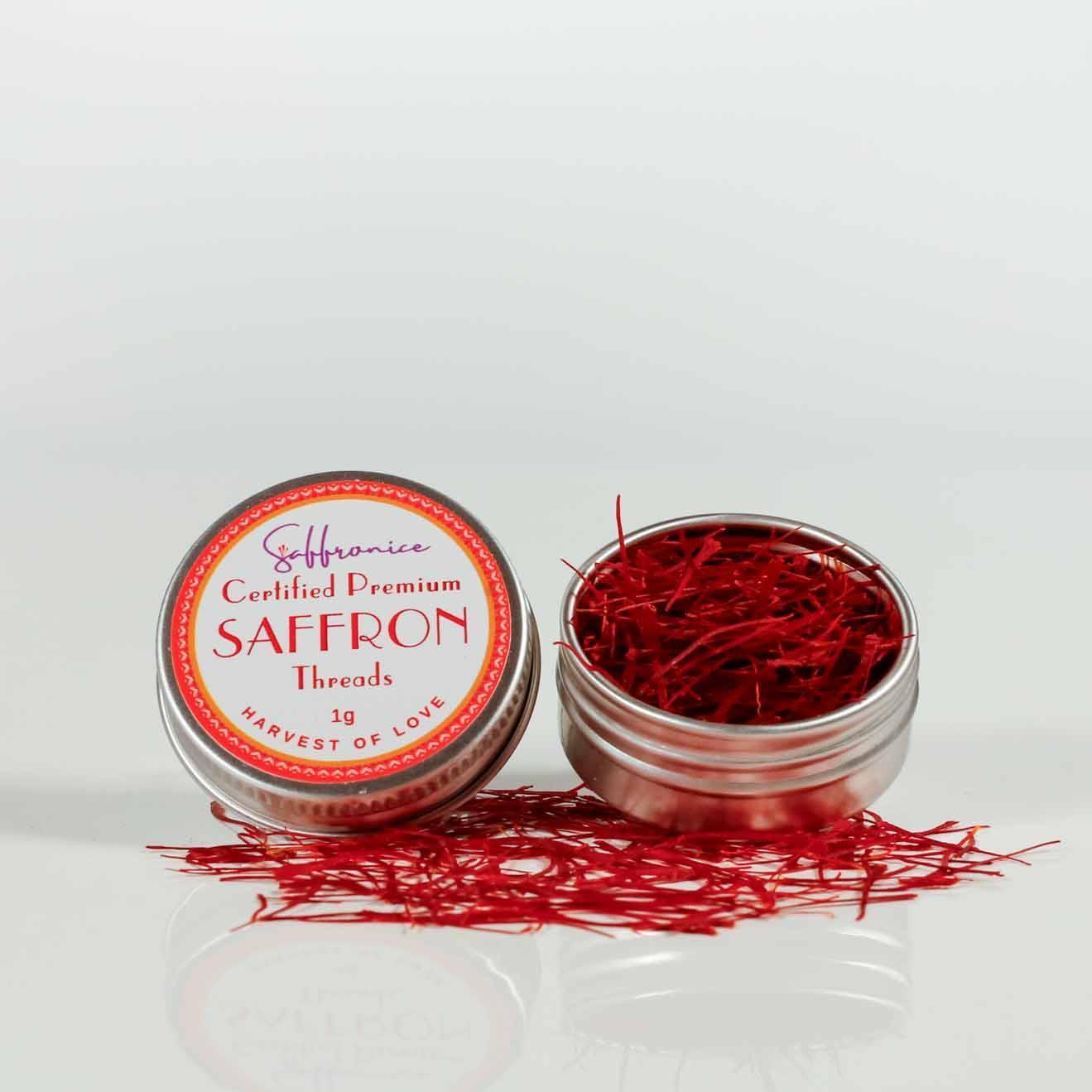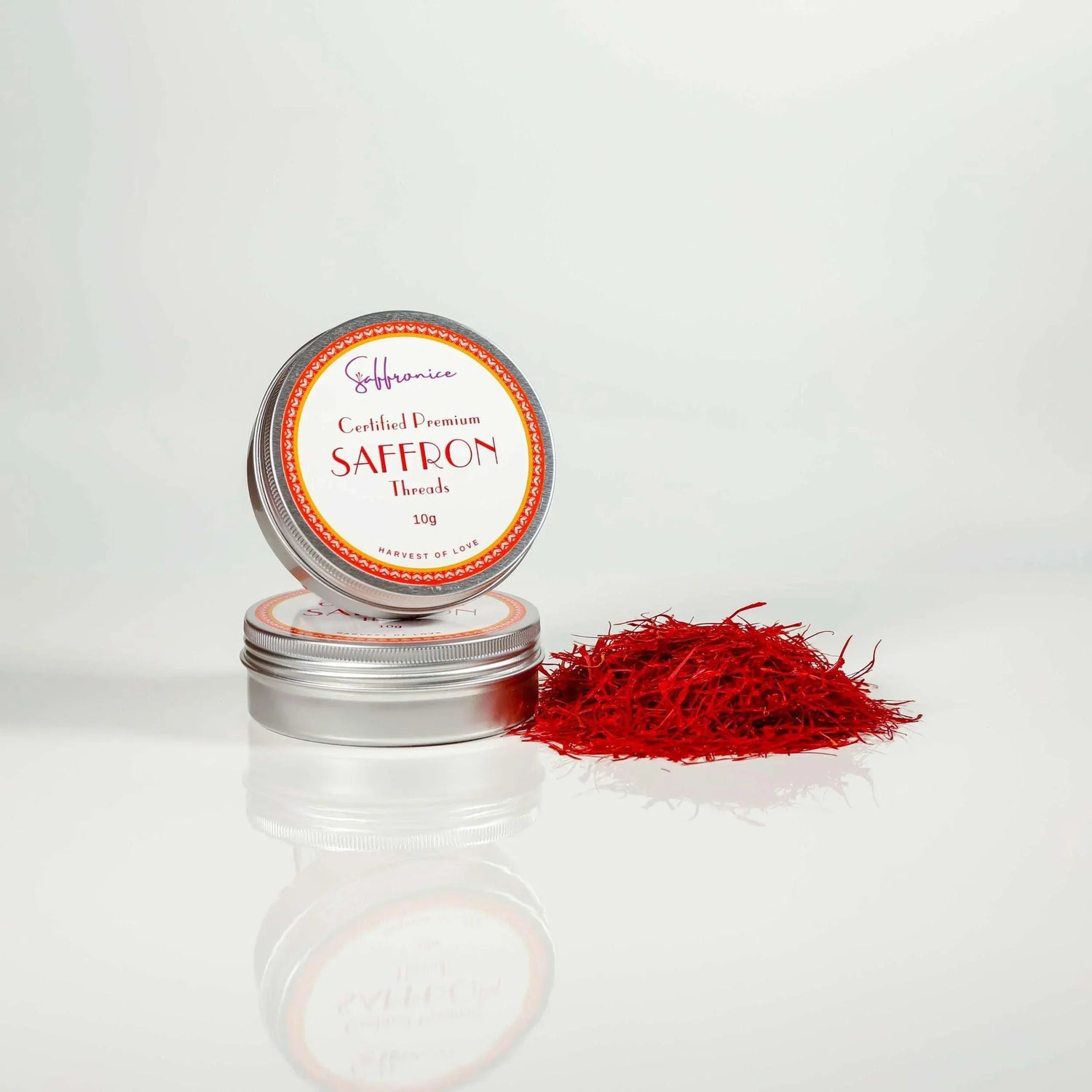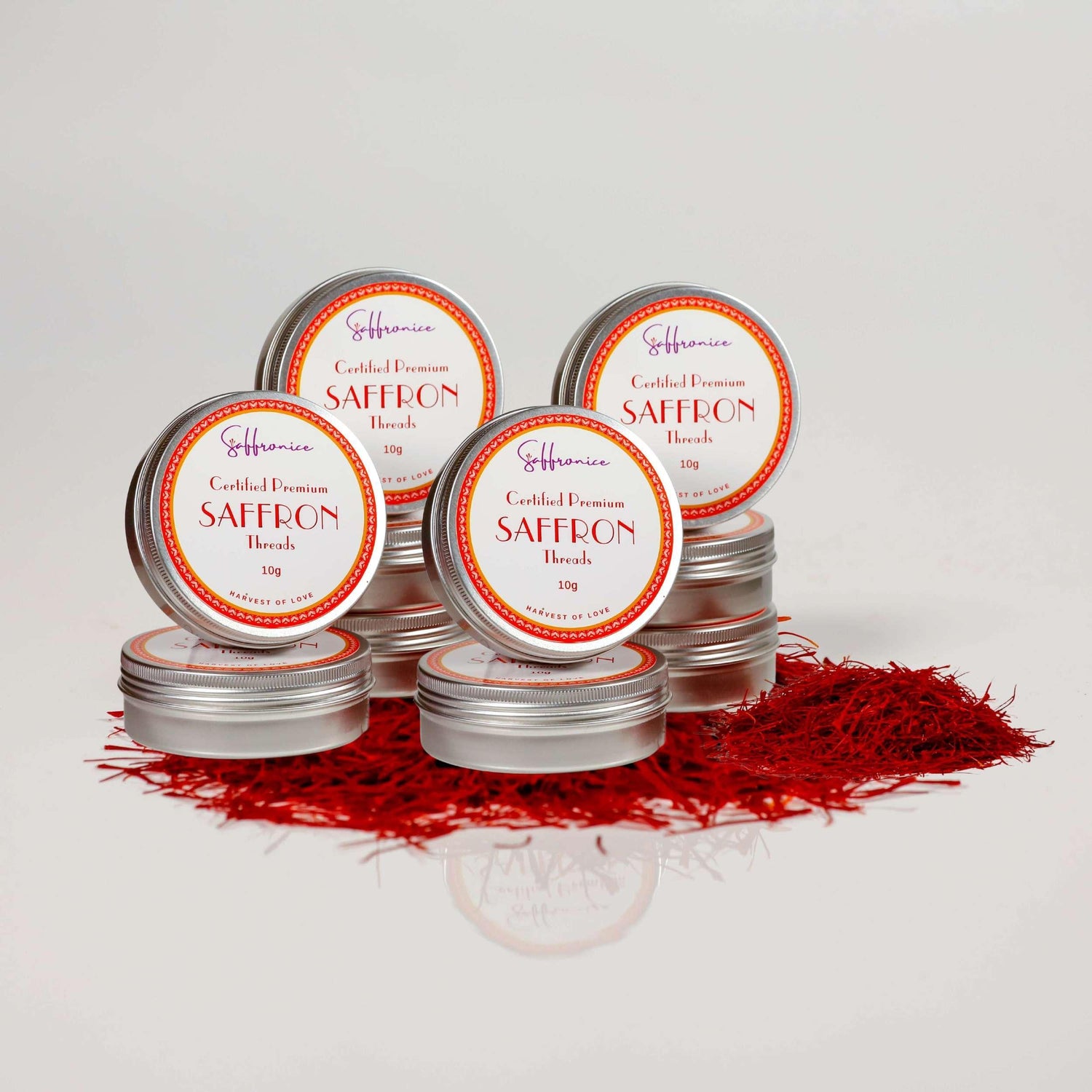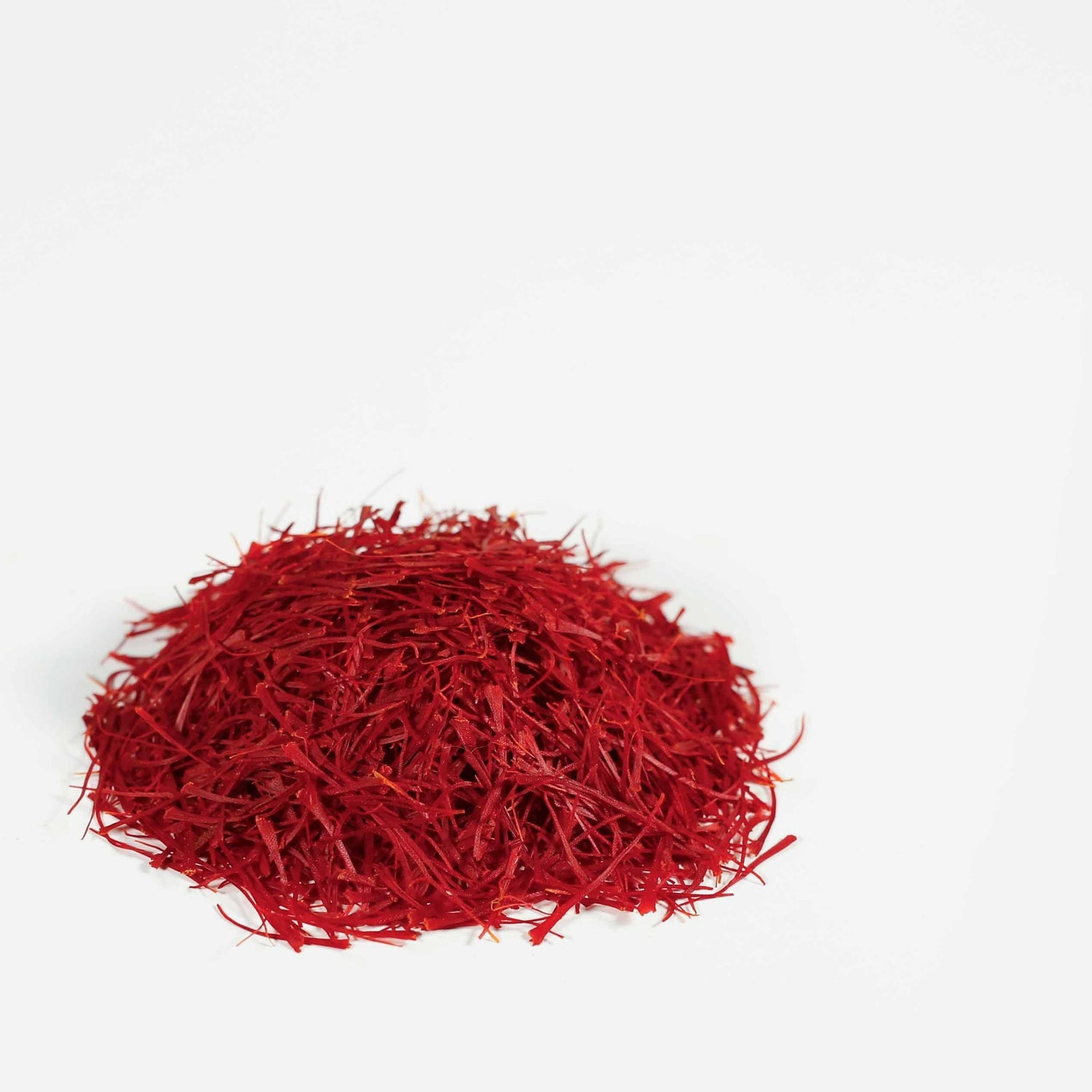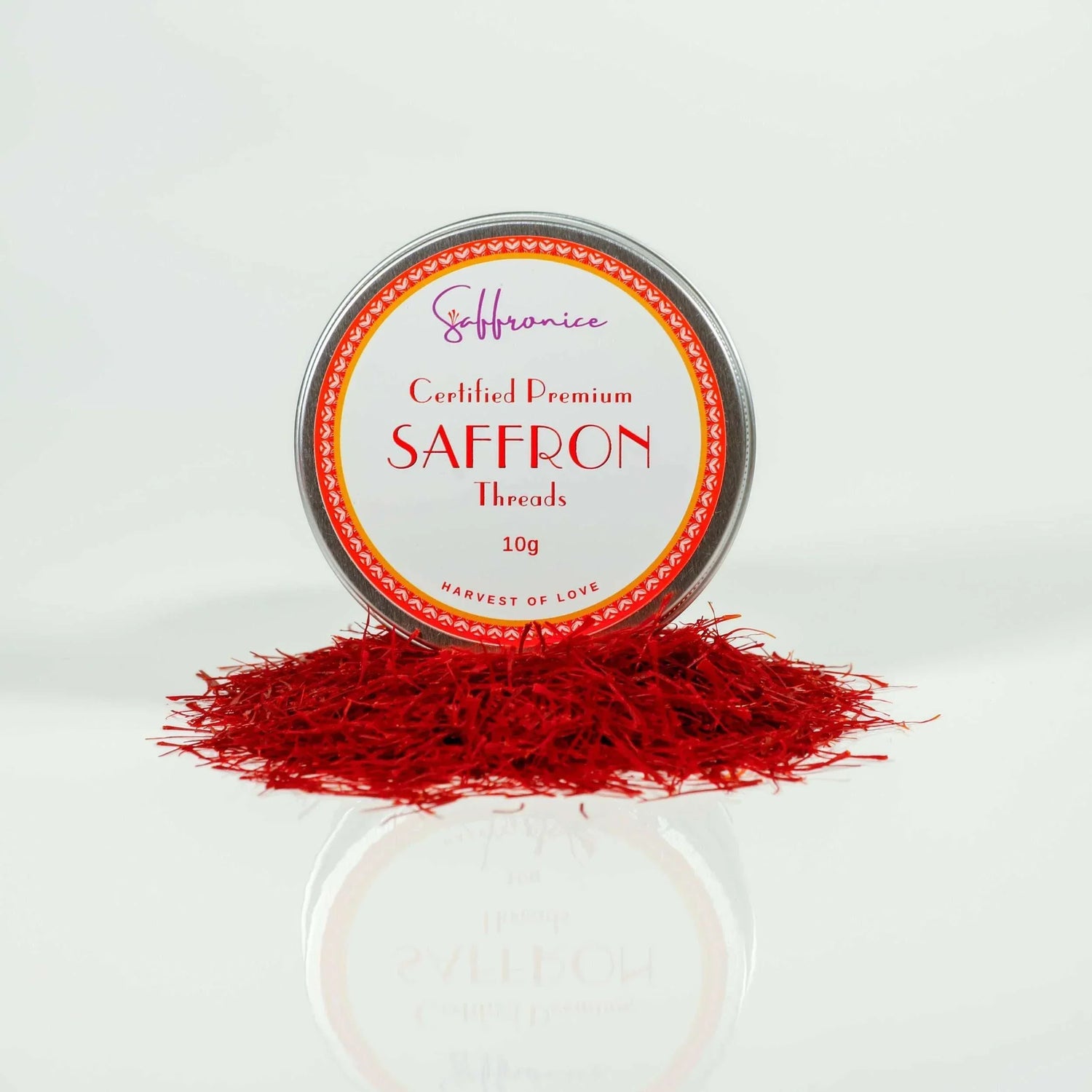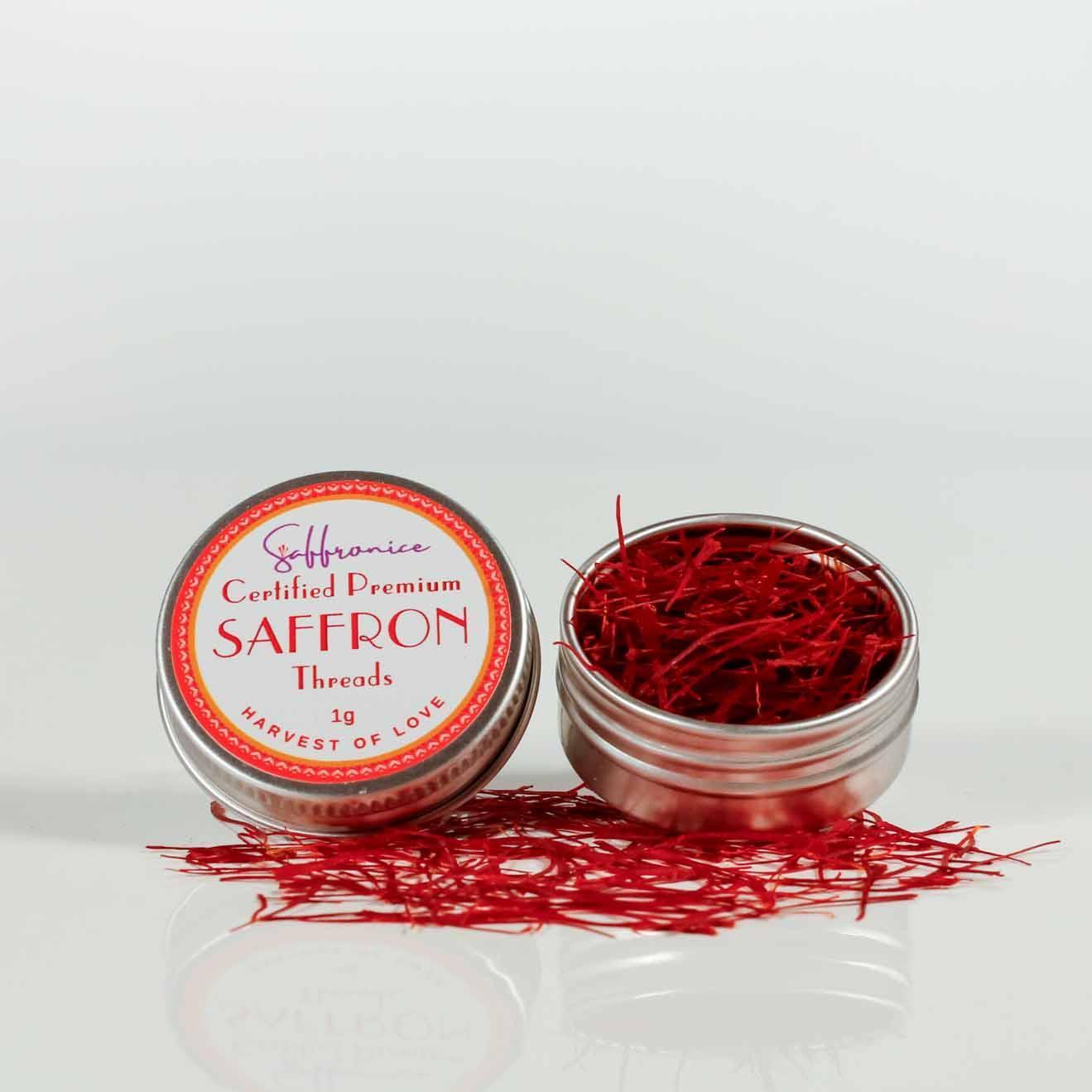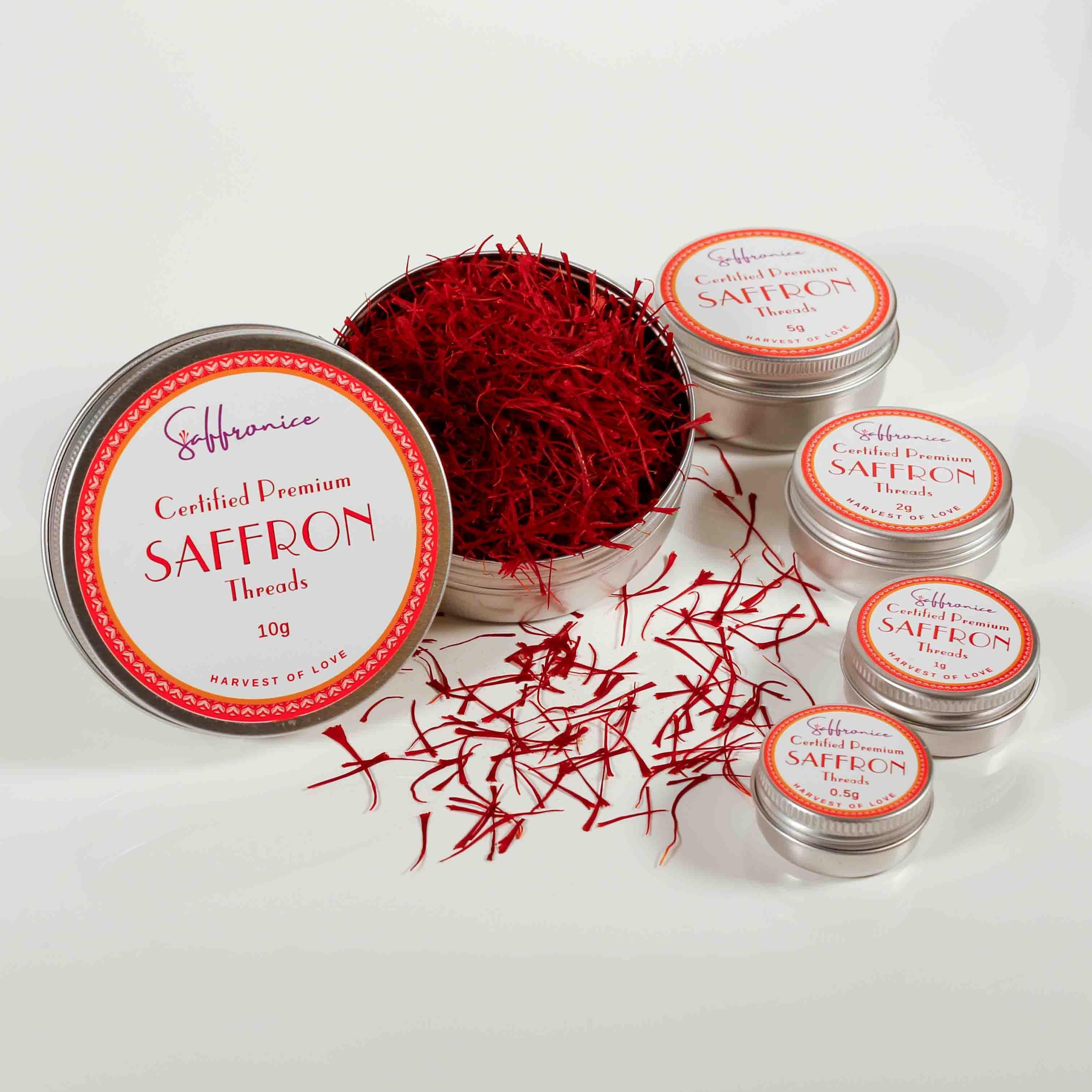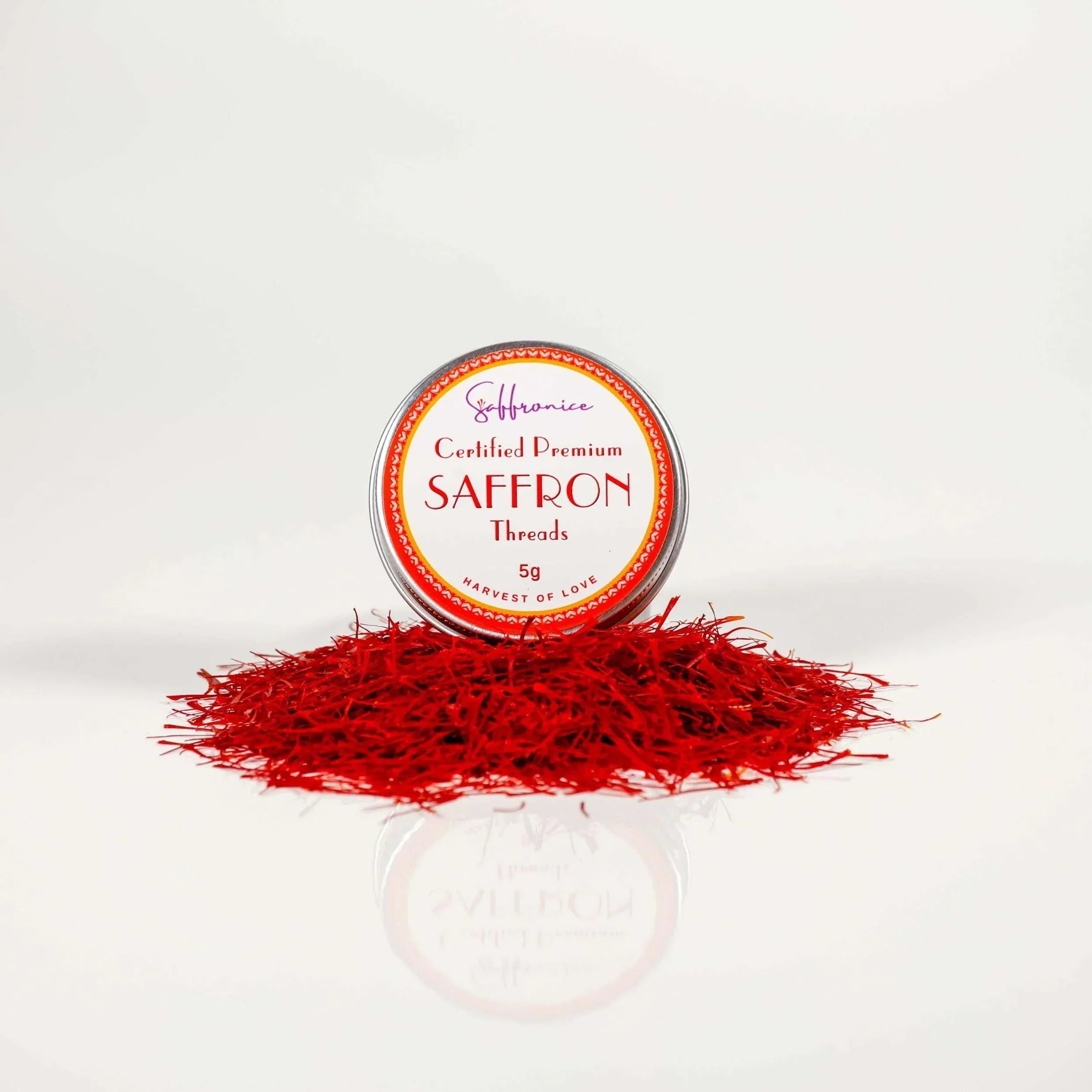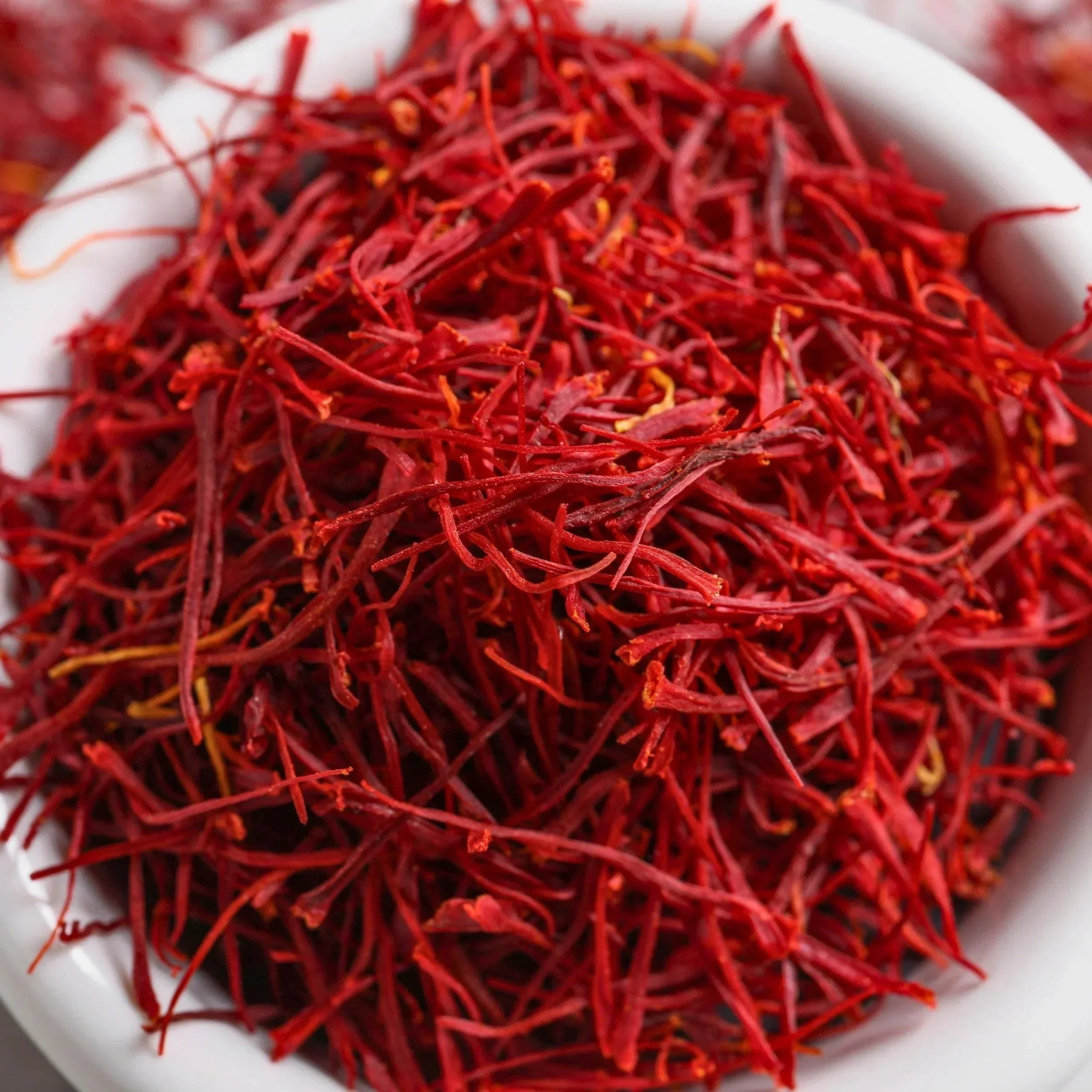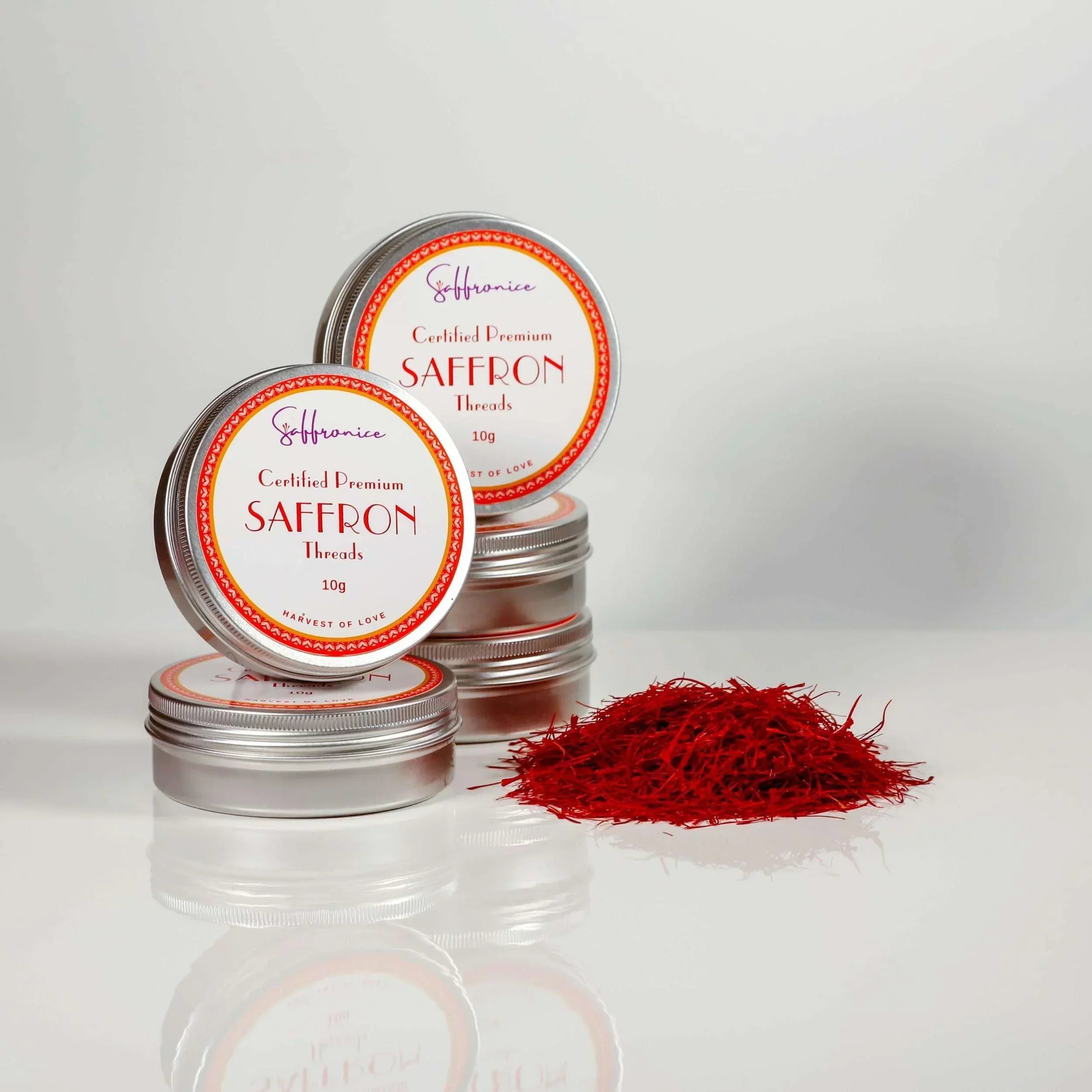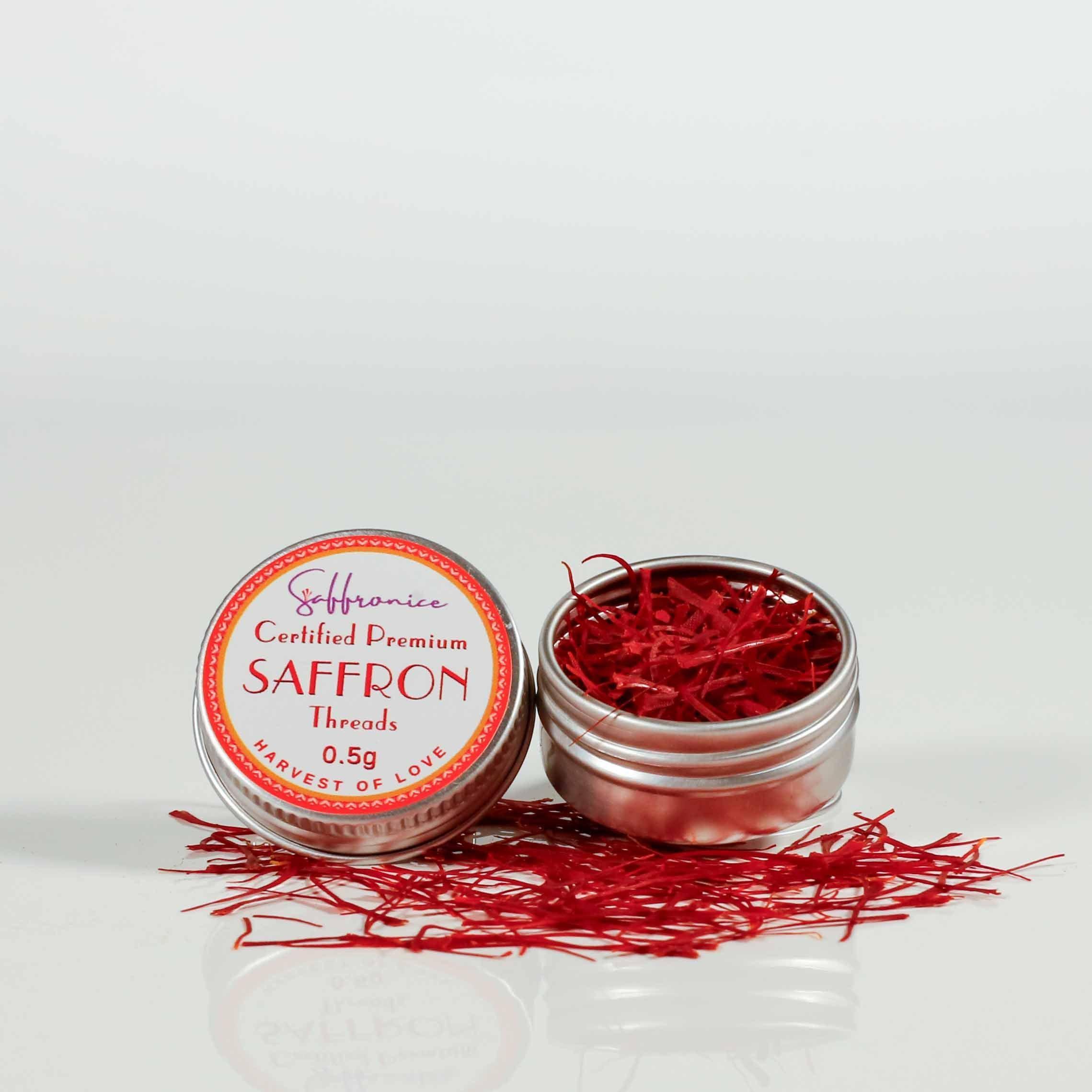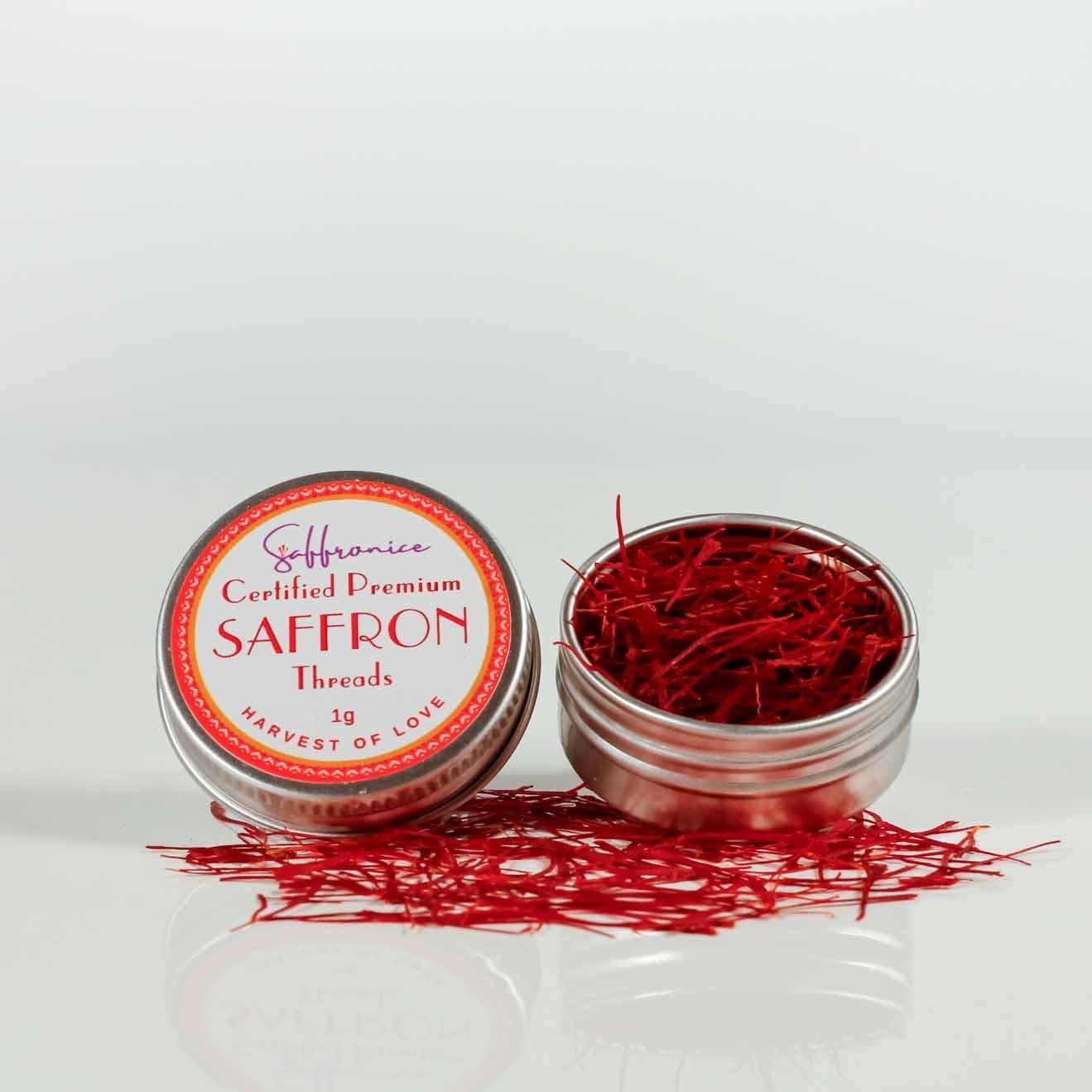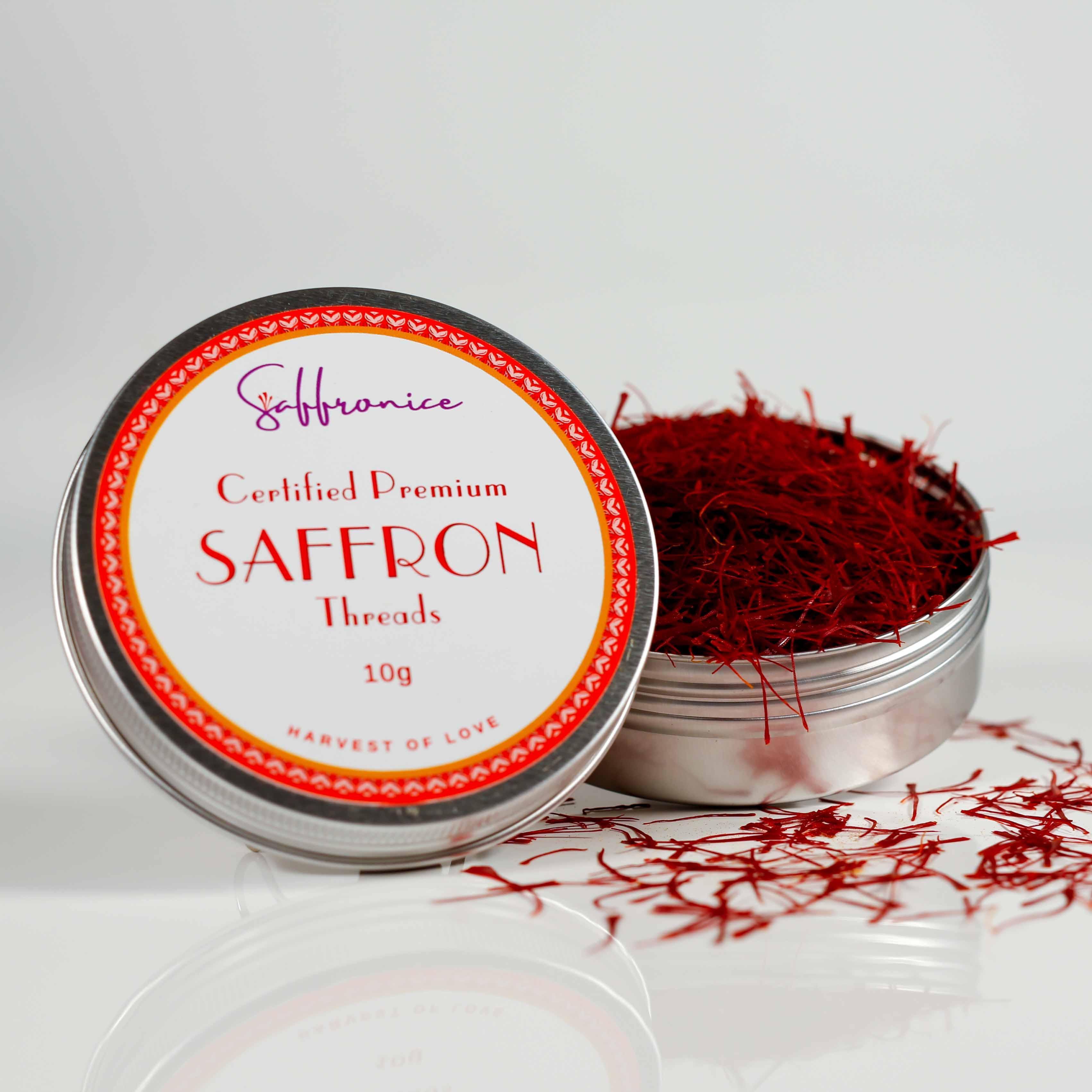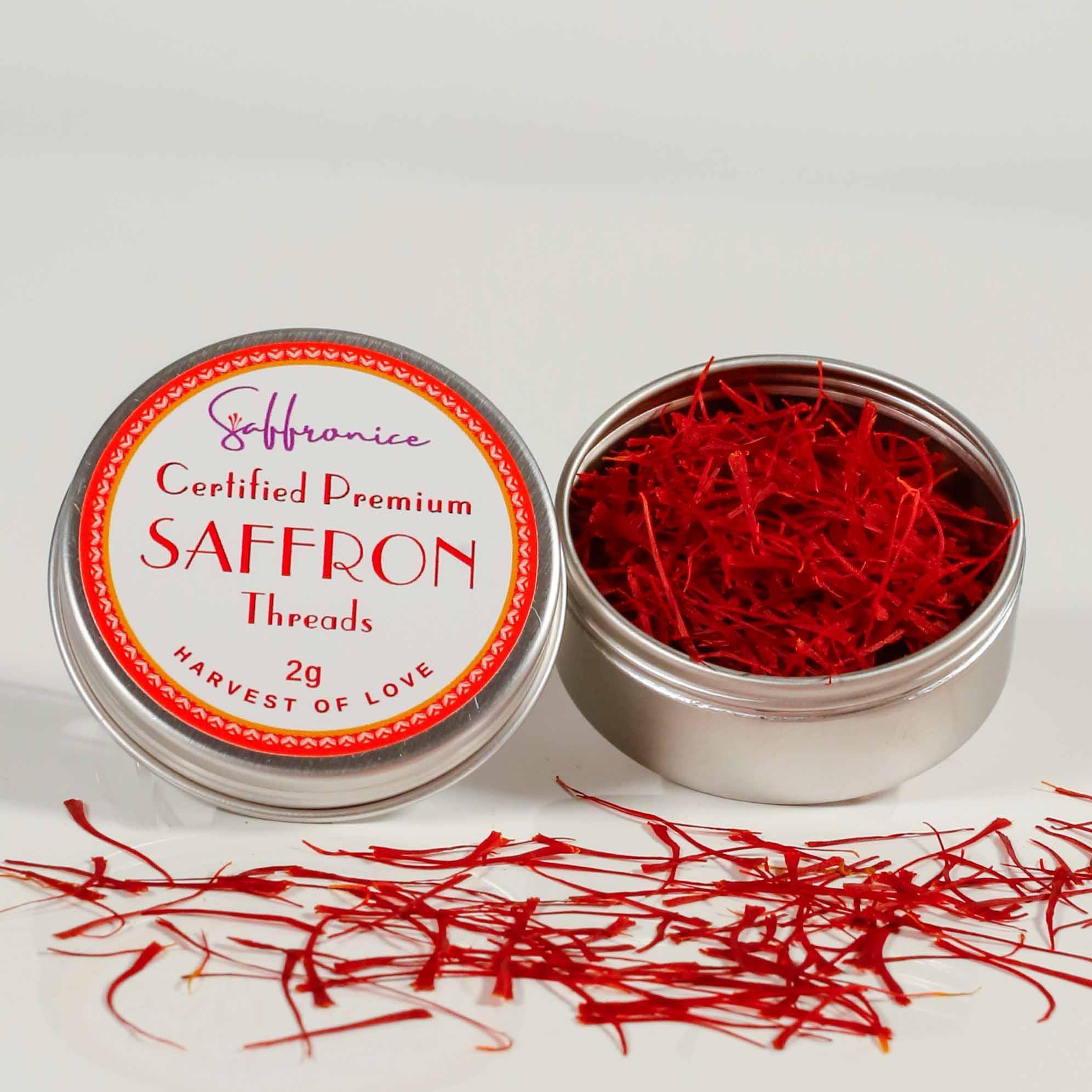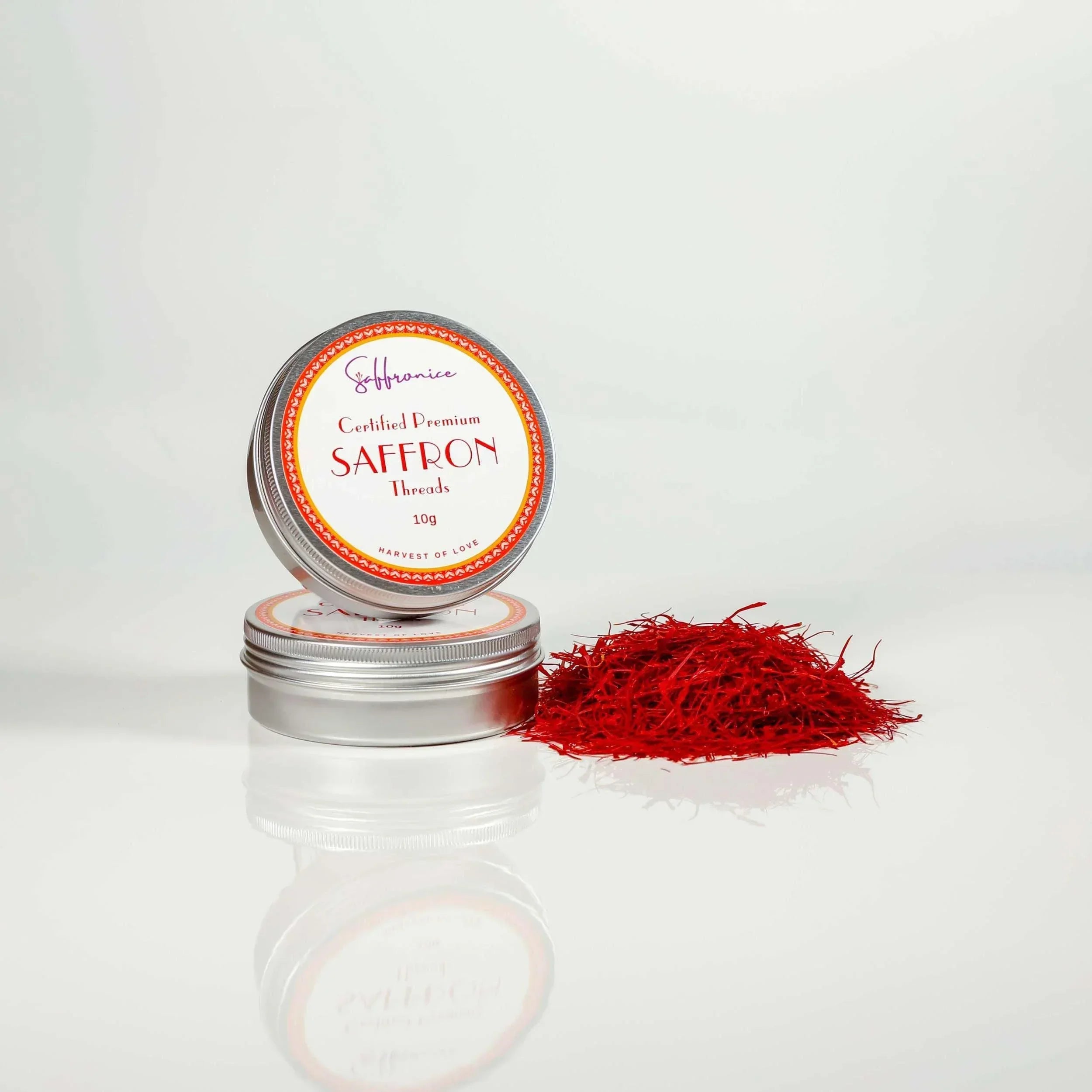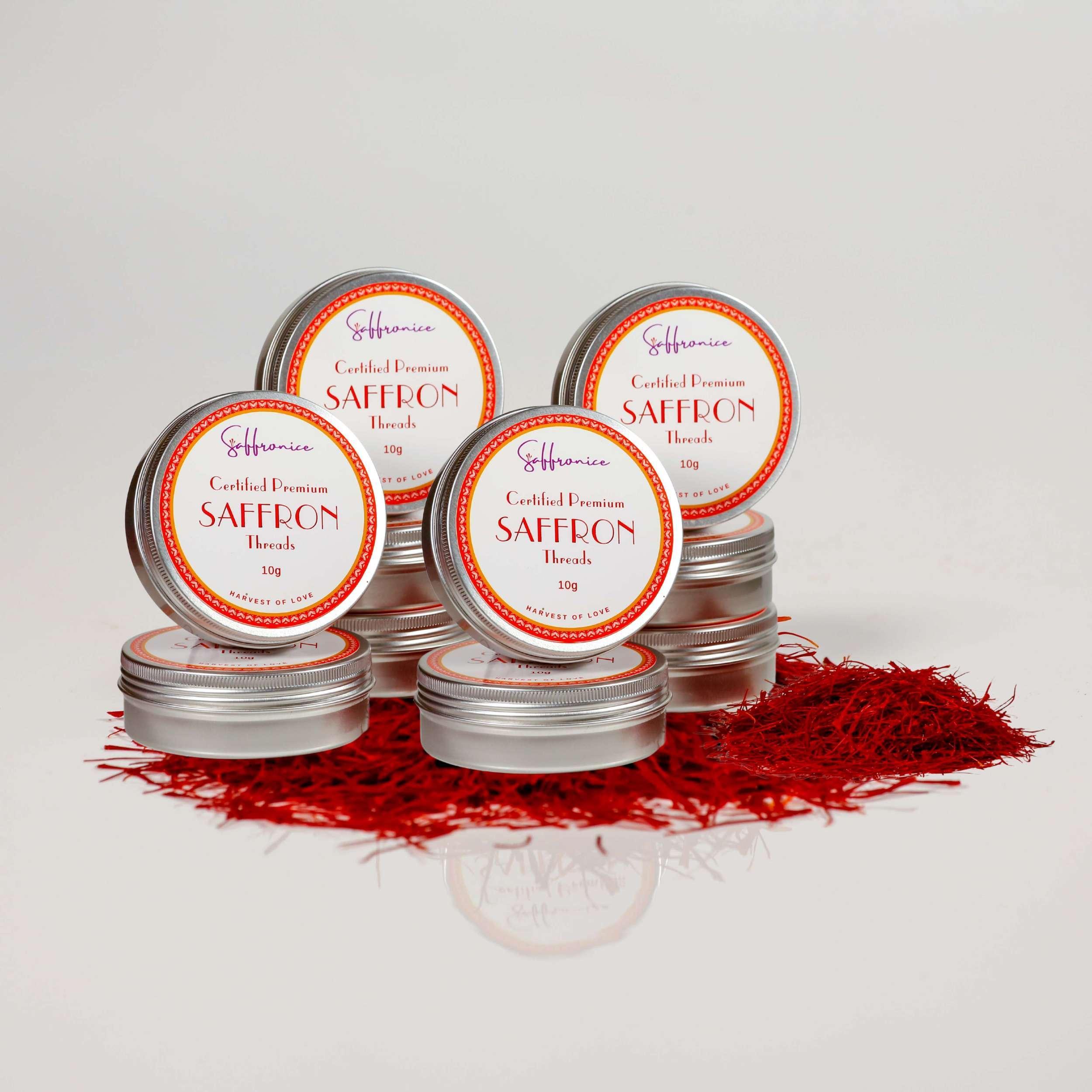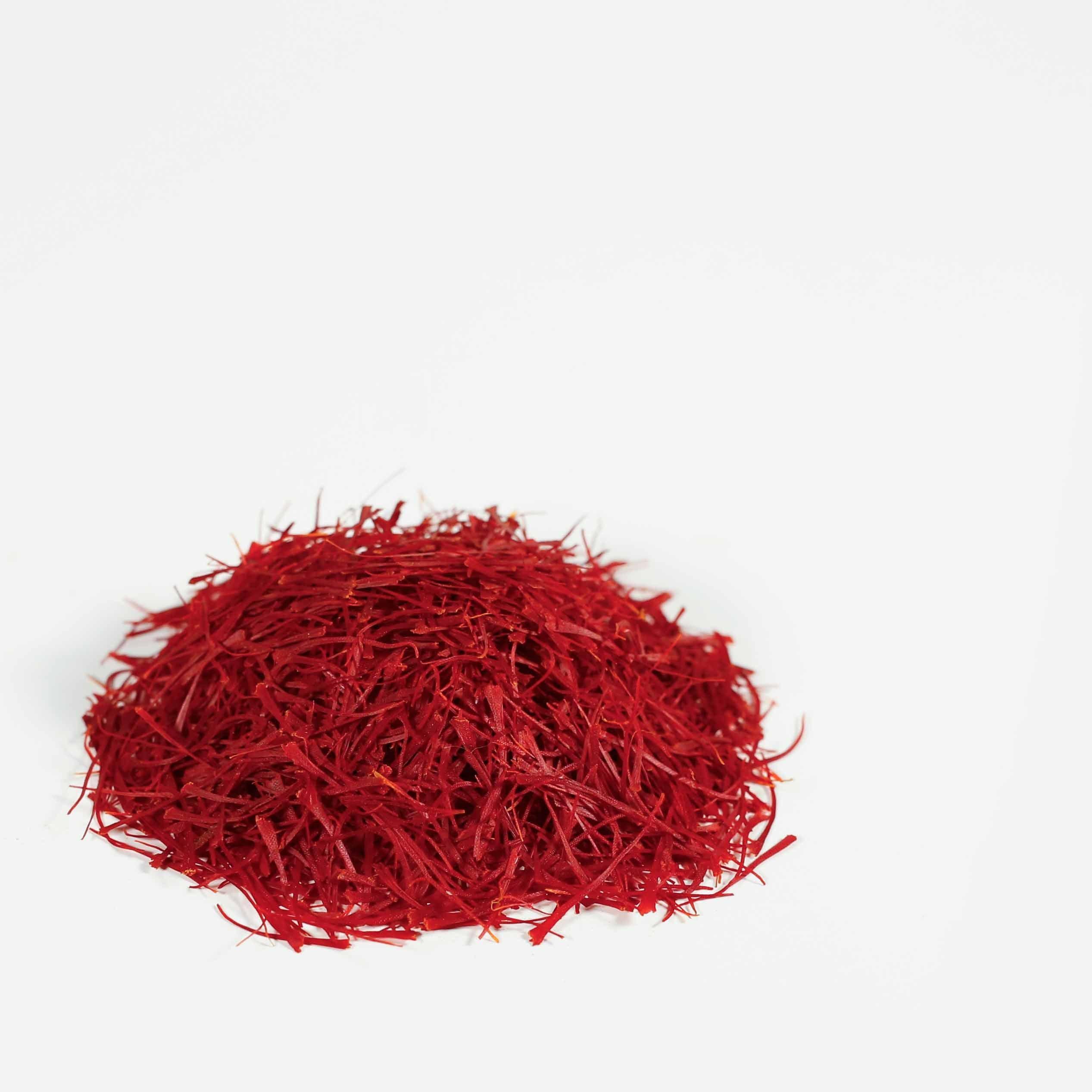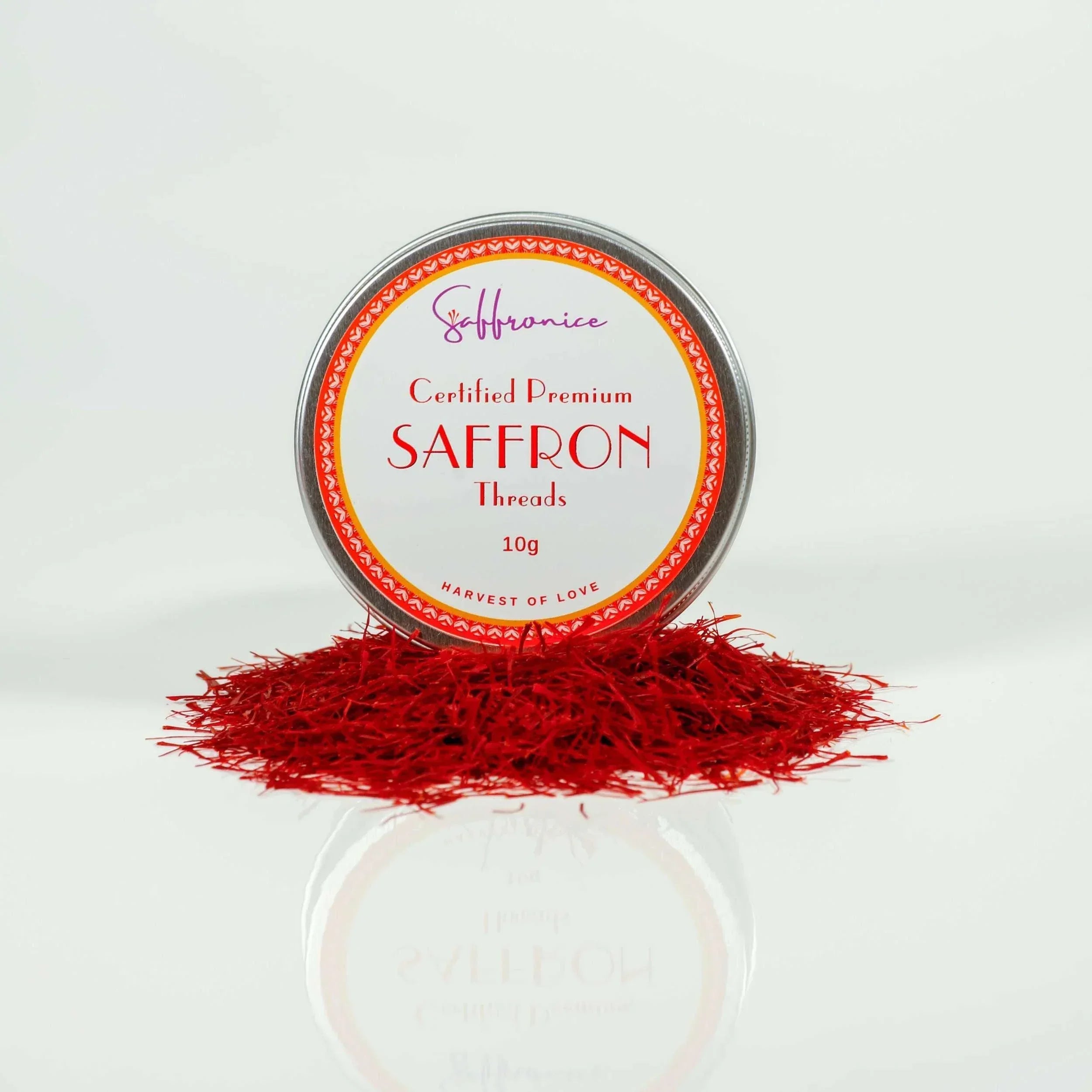If you've been searching for answers about saffron dosage, you've probably noticed that "30mg daily" appears everywhere. But here's what most sources won't tell you: this number isn't a universal truth – it's just a starting point, and there's a fascinating story behind why researchers keep using it.
Let's explore what the science actually says about how much saffron to use and why your optimal dose might be quite different from what you've been told.

The Real Science Behind Saffron Dosing
Good news: research shows saffron is safe and effective across a surprisingly wide range of doses. A meta-analysis of clinical trials found that saffron at 30mg/day showed similar antidepressant efficacy as medications like fluoxetine and imipramine. But that's not the whole story.
Studies have safely used 300-400mg daily for conditions like Alzheimer's and certain cancers. Clinical research has evaluated doses from 20 to 400mg/day, with amounts up to 1.5g/day considered safe. WebMD confirms saffron is "possibly safe when taken as a medicine in doses up to 100mg daily for up to 26 weeks."
So if higher doses are safe and potentially more effective, why does everyone default to saffron 30mg?

Why 30mg Became the Default (And Why It Shouldn't Be Your Limit)
The truth about that famous 30 mg saffron dose is refreshingly practical:
It's About Money: Saffron literally costs more than gold by weight. When researchers need to provide a saffron daily dose to hundreds of participants for months, even 30mg becomes incredibly expensive. Higher doses would blow most research budgets.
Insurance and Red Tape: Universities must satisfy ethics boards and insurance companies by starting with the absolute minimum effective dose. That's why 30 mg saffron supplement studies are so common – it's the safest bet from a liability standpoint.
The Baseline Effect: Here's the key point: 30mg is where effects START becoming noticeable, not where they peak. It's the minimum, not the optimum.
What Research Really Shows About Higher Doses
Recent studies paint an interesting picture. A 2020 rheumatoid arthritis study used 100mg/day for 12 weeks, finding significant improvements in pain and inflammation. Research on standardized saffron extract (Affron®) at 100-200mg effectively normalized stress hormones and enhanced brain plasticity.
Particularly telling: one study found only the higher dose (28mg/day) significantly improved depression and anxiety scores, while lower doses showed minimal effects. Another trial using 400mg/day safely reduced blood pressure in healthy volunteers.
From personal experience (and this aligns with many user reports), the sweet spot often falls between 150-300mg daily. This isn't medical advice – it's simply an observation that the research-constrained doses might not be optimal for everyone.

Quality: The Hidden Variable
Here's something crucial: not all saffron is created equal. Premium, pure saffron will outperform lower-quality alternatives packed with fillers every time.
When evaluating supplements, look for:
-
Pure saffron without unnecessary additives
-
Transparent labeling (no "proprietary blends")
-
Money-back guarantees
-
Clear dosage information
For context, what does 30 mg of saffron look like? It's about 15-20 quality Saffron threads – a generous pinch. But how many strands of saffron is 30 mg varies significantly based on quality and origin.

The Serotonin Factor
Beyond being a powerful antioxidant, saffron's main benefit is boosting your body's natural serotonin production. Research suggests it modulates serotonin pathways similar to SSRIs, which explains its mood-lifting effects.
Here's the catch: most serotonin is produced in your gut. If you're living on processed foods, your gut's serotonin factory is likely underperforming. Adding whole foods – vegetables, fruits, herbs – even 3-4 times weekly can significantly enhance saffron's effectiveness. Combine this with regular sunlight exposure and physical activity for best results.
Discover the science behind saffron's emotional benefits in our comprehensive guide to [natural mood enhancement with premium saffron]
Practical Dosing Guidelines
Based on research and real-world use, here's what we know:
For Depression: Studies show saffron dosage for depression of 20-30mg effective for mild cases, but many people report better results with 50-100mg daily.
For Anxiety: Saffron dosage for anxiety often requires 50-100mg once or twice daily for noticeable effects.
For Weight Management: Saffron dosage for weight loss focuses on consistency – 50-100mg before meals may help with satiety.
How to Use Saffron Effectively
Water Method: Add your dose to a water bottle, let it steep 10-15 minutes, and sip throughout the day. This maintains steady levels.
Tea: For how much saffron to use in tea, 15-50mg per cup works well. Important: never use boiling water – let it cool first to preserve active compounds.
Cooking: Use about 100mg for 2-3 servings when making dishes like saffron rice.
Your Personal Roadmap
-
Start at 30mg – it's a reasonable baseline
-
Evaluate after 2 weeks – minimal effects are normal and signal you can increase
-
Gradually increase to 50mg, then 100mg if needed
-
Find your sweet spot – many people settle between 50-100mg once or twice daily
-
Be patient – full effects typically appear within 4-6 weeks
The Bottom Line
That ubiquitous 30mg dose? It's not a rule – it's a research-budget-friendly starting point chosen for practical, not therapeutic, reasons. The science supports safe use at much higher doses, and real-world experience often suggests 150-300mg as more effective.
Quality matters as much as quantity. Choose pure, high-quality saffron and support it with good nutrition and lifestyle habits. Your optimal saffron dose per day is personal – start conservatively, increase gradually, and listen to your body.
Remember, you're not bound by research constraints. You have the freedom to find what actually works for you within the safe, scientifically-supported range. Whether that's 30mg or 300mg, what matters is finding your personal sweet spot for the benefits you're seeking.
Always consult your healthcare provider before making significant supplement changes, especially if you take medications or have health conditions.


